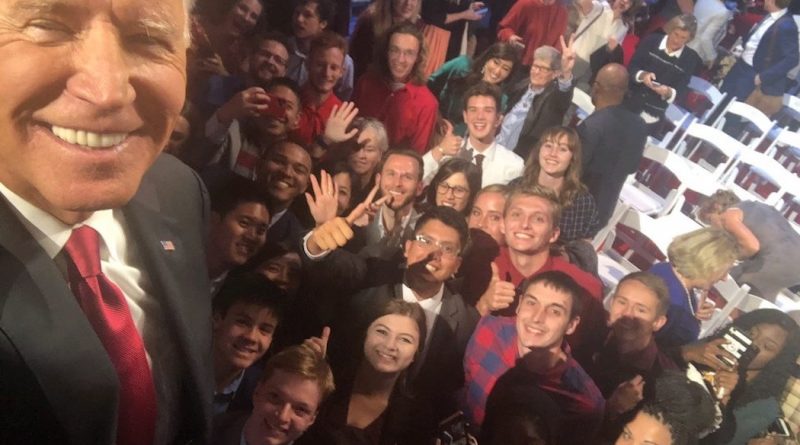OPINION: Who Won Ohio’s Democratic Primary Debate?
Zoe Hill
Contributing Writer
More than ever, it is an exciting time to be an Ohioan. If the last election cycle taught us anything, it’s that our state is a crucial battleground in the presidential race. With quite possibly the most important and intense referendum coming up in just over a year, the debate season is in full swing. At the beginning of this year, twenty six Democratic hopefuls set out to win the hearts and votes of the American populus. As we start to close out 2019, nineteen candidates remain. To bring the race to a head, Ohio hosted the fourth Democratic National Convention debate, sponsored by CNN and the New York Times. With over 25,000 Democrats applying for tickets, only a small fraction were able to attend at Otterbein University, just north of Columbus.

Moderators Anderson Cooper, Marc Lacey, and Erin Burnett opened the debate by announcing that the candidates would not be allowed opening statements. This is unprecedented for a primary debate, but with a flooded field of a record twelve debaters in one night, CNN and the New York Times worked hard not to waste the American public’s time. The candidates, however, attempted to go over their time with every question.
The night opened by addressing the elephant in the room—President Trump’s ongoing impeachment proceedings. All of the candidates on stage have come forward to publicly support impeachment, and none of them wavered when the question came up. Not only was this an opportunity for the Democratic hopefuls to directly protest their biggest opponent, but it was also a chance for former Vice President Joe Biden to speak out on the subject. With his son’s involvement in the impeachment case, all eyes were on Biden. He simply put it all out there by reiterating,”He has done nothing wrong.”
Quickly after, Anderson Cooper moved the conversation onto the usual suspects when it comes to partisan issues. Starting with healthcare and the economy, Sen. Elizabeth Warren dodged nearly all questions directed at her plan to pay for Medicare for All. It was palpable how evasive she was being, which was picked up by Sen. Amy Klobachar and Mayor Pete Buttigieg, both of who went after her for it.
The candidates also attacked the topics of income inequality, foreign policy, gun control, the opioid epidemic, health and age, antitrust laws, reproductive rights, the supreme court, and strangely, Ellen DeGeneres.
Performance wise, the night was highly concentrated with fighting among candidates—more than usual. Congresswoman Tulsi Gabbard and Mayor Pete Buttigieg, both of whom are U.S. veterans, went head to head on how to deal with the war in the Middle East. Buttigieg was also in verbal battle with former Congressman Beto O’Rourke over mandatory gun buybacks and with Sen. Elizabeth Warren over Medicare for All Who Want It, Buttigieg’s health care proposal. One candidate who seemingly did the polar opposite was Sen. Cory Booker, who made it his mission to defend Biden and stated on several occasions how disgusted he was with the argumentative tone of the night.
Speaking time is the currency on nights like these, and frontrunners Warren and Biden controlled most of it. They were followed closely by Sen. Klobachar, Congressman O’Rourke, and Sen. Bernie Sanders. The quiet ones on stage Tuesday night were tech mogul Andrew Yang, former Secretary Julián Castro, newcomer and billionaire Tom Steyer and Congresswoman Gabbard, who made a resurgence after not qualifying for September’s debate stage.
The night was also accompanied by many memorable quotes, such as Sen. Kamala Harris’ catchphrase “He gotta go” when referring to President Trump. Sen. Warren also granted the audience a chuckle when she admitted that she “[doesn’t] have beef with billionaires.” And, after dismissing Erin Burnett’s question on his health, Sanders reassured that he was “healthy” and “feeling great” post-heart attack.
Although the pool of candidates allowed for argument, laughter, and confusion on Tuesday’s debate stage in Ohio, the Democratic hopefuls opened up a discursive conversation. With high hopes and even higher expectations when it comes to presidential performance, I can say with confidence that the winners of the debate were the millions who witnessed primary debate history across the nation.
Photos courtesy of Thomas Pedrotti

